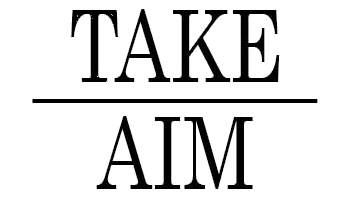Positive Behavior Support Services
A strategic system for addressing challenging behaviors.
Do you have a family member or loved one whose behaviors are out of control? Stress levels at home at all time high? Ongoing conflict at school? Is going out into the community an impossibility? Are you in fear of your safety, or the safety of others?
Support and help are available to identify root causes and develop strategies to address challenging behaviors.
Take Aim’s Positive Behavior Support Services are evidence based practices that reduce or eliminate challenging behaviors and improve the quality of life for children, adults, and families. Challenging behaviors can be the result of disability, illness, trauma, or injury. This may include autism spectrum disorder or other developmental disabilities, mental illness, chemical imbalance, stroke, dementia, or traumatic brain injury.
Examples of challenging behaviors can include:
- Self-injurious behavior
- Aggressive physical behavior towards others
- Verbal aggression
- Property damage
- Tantrums
- Stimming
- Inappropriate sexualized behavior
- Elopement or running away
Positive Behavior Support Services include:
Individualized Therapeutic Supports – Take Aim offers a variety of direct, hands-on options specifically tailored for your unique situation. Expertly trained and compassionate Licensed Behavioral Specialists, Technicians, and Counselors are available to collaborate with you and your family to assess, improve, and stabilize any environment. A MANDT Systems® Certified Instructor can provide training on verbal de-escalation and physical safety intervention strategies. Whether it be in the home, school, work, community, care/residential facilities, short-term or long-term, we’re here to help.
Functional Behavioral Assessments: A comprehensive process that identifies causes, triggers, and factors that contribute to challenging behaviors. A Functional Behavior Assessment includes:
- A description of the whole person, including personal history review, present circumstances, interests, and strengths.
- Each challenging behavior is analyzed and described in measurable terms, how often the challenging behavior occurs, how long the challenging behaviors will continue, and the severity of the challenging behaviors.
- Data collection methods that assess what happens before a challenging behavior occurs, commonly known as predictors, as well as the function of the behavior, or why the behavior occurs.
Positive Behavior Support Plans:
Based on information gained from the Functional Behavior Assessment, an extensive, individualized plan is developed that is utilized as a practical tool for challenging behavior intervention. A Positive Behavior Support Plan includes:
- Clear definitions of each challenging behavior.
- Prevention strategies to avoid challenging behavior triggers, and minimizing the occurrence and impact if the challenging behavior cannot be avoided.
- Incorporating existing interests and strengths to increase a successful outcome.
- Teaching and training techniques that introduce or expand general life skills that may replace challenging behaviors.
- Specific strategies, or action steps, for responding to the challenging behavior that assists the person with problem solving and stress reduction.
Hands-on Positive Behavior Support Interventions: Through a team-based approach, Take Aim professionals provide therapeutic short-term, ongoing, or “tune-up” services to individuals, families, and other support staff, within the family home, at school, in the workplace, out in the community, or in care/residential facilities.
Counseling: Take Aim offers specialized Positive Behavior Support individual, family and group counseling options, with an insightful and caring practitioner who is a both a Behavior Specialist and a Licensed Social Worker.
Training and Consultation: Take Aim offers uniquely designed Positive Behavior Support training and consultation services to families, support staff, school districts, skilled nursing and assisted living facilities, law enforcement and first responders, professional organizations, tribal communities, and local, state, and Federal agencies and industries.




